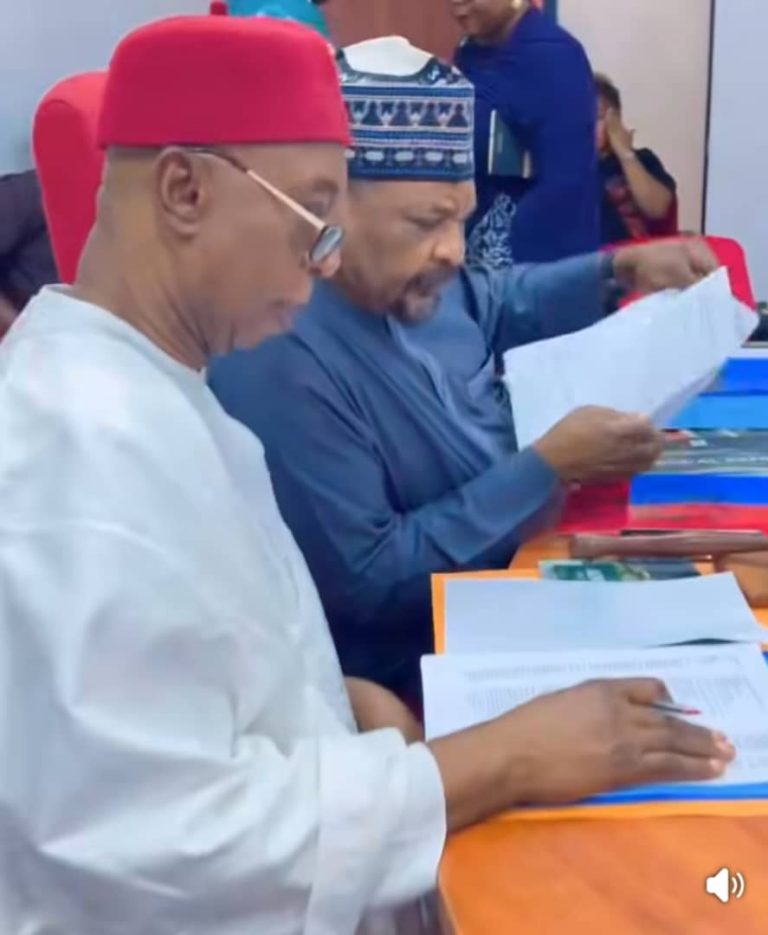
Zoning, as a political tool for the distribution of power and resources, has been used in Nigeria since the colonial era. The concept of zoning is based on the idea of sharing power and resources among different regions or ethnic groups. It has been used to achieve national integration and to promote equity and fairness.
In Nigeria, the issue of zoning has become a controversial one that has generated heated debates in the political arena. While some argue that zoning is necessary for achieving balanced development and promoting national unity, others believe that it violates democratic principles by limiting the choice of the electorate.
This article examines the concept of zoning, its history in Nigeria, and its impact on the country’s politics and development.
History of Zoning in Nigeria
The history of zoning in Nigeria can be traced back to the colonial era. During this period, the British colonial government introduced the concept of “Indirect Rule” which allowed them to govern the country through the traditional rulers. The traditional rulers were given some level of autonomy to rule their people but were expected to align themselves with the British colonial government.
After Nigeria gained independence in 1960, the country was divided into three regions: Northern, Eastern, and Western regions. Each region had its own government and was governed by a Premier who was elected by the people. The system worked well until the first military coup in 1966, which led to the centralization of power in the federal government.
Following the end of military rule in 1999, Nigeria returned to a democratic system of government. The PDP (People’s Democratic Party) emerged as the ruling party and introduced zoning as an unwritten policy.
The PDP introduced zoning in order to promote national unity and to balance political power among the regions. The party zoned the presidency between the North and South of the country. In 1999, the presidency was zoned to the South and was won by Chief Olusegun Obasanjo from the South-West. In 2007, it was zoned to the North, and Umaru Musa Yar’Adua from the North-West won the election. When Yar’Adua died in office, Goodluck Jonathan from the South-South took over and completed his term. In 2011, Jonathan contested and won the presidential election, which was still zoned to the South.
Zoning became popular in Nigeria after the PDP implemented it. Other political parties followed suit and began to zone their candidatures in elections. The All Progressives Congress (APC) adopted zoning in 2015, and President Muhammadu Buhari from the North-West was elected.
Advantages of Zoning
Zoning has some advantages that have made it popular in Nigeria. These advantages include:
- Promotes Balanced Development
Zoning ensures that every part of the country is represented in government. This promotes balanced development because politicians from all regions are involved in decision-making and allocation of resources.
- Promotes National Unity
Zoning promotes national unity by giving every region a sense of belonging and representation in government. This reduces the feeling of marginalization and ensures that every region has a stake in the country’s affairs.
- Enhances Fairness and Equity
Zoning ensures that every region has a fair chance of producing a President, Governor, or other elected officials. This enhances fairness and equity in the distribution of power and resources.
- Reduces Ethnic Tension
Zoning reduces ethnic tension by ensuring that no single ethnic group dominates political power. This reduces the possibility of conflict and promotes peaceful coexistence among different ethnic groups.
Disadvantages of Zoning
Despite its many advantages, zoning has some disadvantages that have made it controversial in Nigeria. These disadvantages include:
- Violation of Democratic Principles
Zoning violates democratic principles by limiting the choice of the electorate. Zoning means that only candidates from a particular region are eligible to contest for a particular position. This limits the choice of the electorate and may result in the emergence of incompetent leaders.
- Encourages Political Nepotism
Zoning encourages political nepotism by giving undue advantage to candidates from a particular region. This means that merit is sacrificed for regional considerations, resulting in the selection of incompetent leaders.
- Promotes Mediocrity
Zoning promotes mediocrity by allowing unqualified candidates to be elected based on regional considerations rather than merit. This results in the selection of leaders who lack the skills and expertise needed to govern effectively.
- Limits National Integration
Zoning limits national integration by promoting regional differences rather than national identity. This may result in the emergence of regional blocs that compete for power and resources, leading to political instability.
Conclusion
Zoning, as a political tool for the distribution of power and resources, has been used in Nigeria since.
Written by: ORO EJIRO DAVID
Law student Delta state university.





